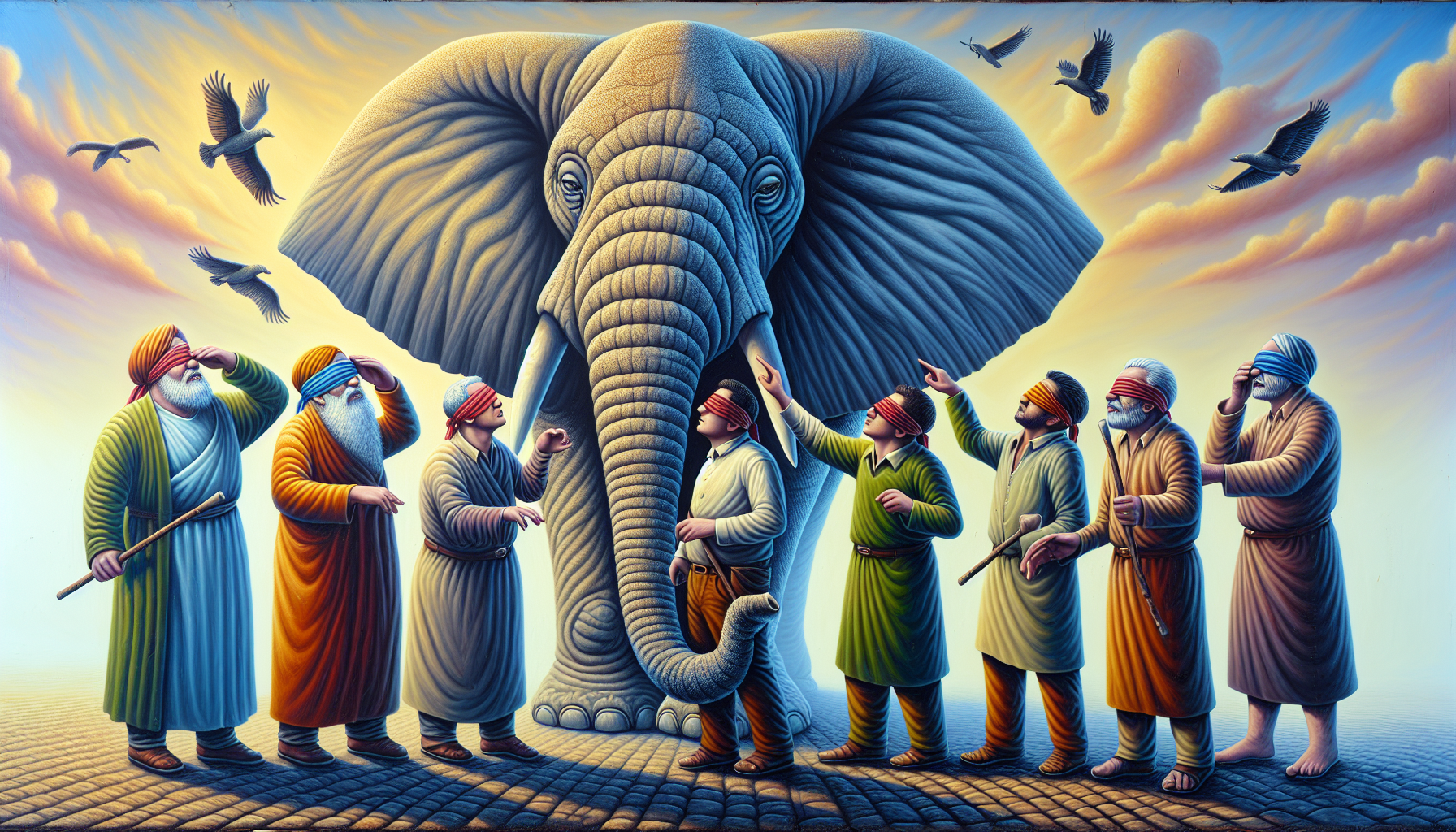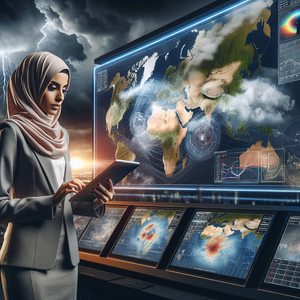Beyond the Radar: Unique Roles of Meteorologists and Their Pay

The field of meteorology encompasses a wide range of specialties. While many meteorologists work for government agencies or private forecasting services, increasing numbers are finding their niche in less conventional roles. These can include working as consultants for agricultural firms, contributing to film and media productions, or even engaging with tourism boards to promote weather-sensitive travel. By diversifying their skill sets, meteorologists are carving out lucrative paths that extend beyond the radar.
Unique Roles and Their Financial Rewards
One of the most significant roles that meteorologists take on is as agricultural consultants. These professionals analyze weather patterns to help farmers maximize crop yields and minimize losses due to adverse weather conditions. According to the National Oceanic and Atmospheric Administration (NOAA), effective weather consultations can lead to a 10% increase in crop yields. With agriculture being a multi-billion-dollar industry, meteorologists in this role can command impressive fees for their expertise. As farmers increasingly turn to data-driven methods to enhance productivity, the value of meteorological insights continues to grow, translating into higher salaries for consultants.
Meteorologists in Entertainment
The entertainment industry also calls for meteorological expertise, particularly in film and television production. Weather can dramatically impact shooting schedules, and having a meteorologist on set can save time and money. For instance, the production of "Twister," a film centered around tornadoes, employed a team of meteorologists to create realistic weather scenarios. Meteorologists in this niche can earn competitive salaries, sometimes exceeding those of traditional forecasters, especially if they have a reputation for reliability and expertise. Their ability to provide accurate predictions can make or break a production's budget, leading to substantial financial rewards.
Tourism and Event Planning
Tourism sectors are increasingly reliant on weather forecasts to drive their business. Meteorologists working with tourism boards or event planners provide crucial data that influences travel decisions. For example, a meteorologist might advise a resort on the best time to host a beach festival based on seasonal weather trends. This role not only offers flexibility but can also lead to lucrative contracts, especially in regions heavily dependent on tourism. As weather patterns become more unpredictable due to climate change, the demand for skilled meteorologists in tourism is likely to increase.
Disaster Management and Preparedness
Meteorologists also play a crucial role in disaster management and emergency preparedness, working with government agencies and non-profits. By providing accurate forecasts and risk assessments, they help communities prepare for extreme weather events, which can result in significant funding and grants. Positions in this area often come with competitive salaries due to the critical nature of the work and the expertise required. The Federal Emergency Management Agency (FEMA) and similar organizations seek meteorologists to inform their strategies, making this a vital and rewarding career path.
Supporting Examples and Evidence
A study conducted by the Bureau of Labor Statistics (BLS) indicates that while traditional meteorologists earn an average salary of around $100,000, those in specialized roles like agricultural consulting can earn upwards of $120,000, while meteorologists in the entertainment industry can exceed even that figure based on project contracts. Furthermore, a report by the American Meteorological Society highlights that meteorologists with advanced degrees and certifications in niche areas command higher salaries due to their specialized knowledge and skills. For instance, a meteorologist with expertise in climate modeling may find opportunities in various sectors, leading to increased earning potential.
The field of meteorology is not limited to the familiar role of delivering the daily weather report. With a rich array of opportunities in agriculture, entertainment, tourism, and disaster management, meteorologists have the potential to earn higher salaries and make significant contributions to diverse industries. As the demand for weather expertise continues to grow in our increasingly climate-sensitive world, those willing to explore these unconventional roles may find not only fulfilling careers but also financial rewards that exceed traditional expectations. For aspiring meteorologists, these unique paths present an exciting glimpse into the multifaceted nature of weather science and its applications in real-world scenarios. In a profession that extends far beyond the radar, the possibilities are as expansive as the skies themselves.
Agricultural Meteorologist
Agricultural consulting firms, universities, government agricultural departments
Core Responsibilities
Analyze weather data to provide insights that optimize crop management and yield.
Develop tailored forecasts to help farmers make informed planting and harvesting decisions.
Collaborate with agronomists and agricultural scientists to implement weather-based strategies.
Required Skills
Strong understanding of agronomy and weather impacts on agriculture.
Proficiency in data analysis and modeling software for predicting weather trends.
Communication skills to convey complex meteorological information to non-experts.
Weather Consultant for Film and Television
Film studios, television networks, independent production companies
Core Responsibilities
Provide real-time weather forecasts and advice during film shoots to avoid weather-related disruptions.
Assist in creating realistic weather scenarios for productions, ensuring authenticity.
Collaborate with producers and directors to plan shooting schedules around weather conditions.
Required Skills
Experience in weather forecasting and an understanding of weather’s impact on film production.
Ability to work under tight deadlines and adapt to rapidly changing conditions.
Strong networking skills to build relationships within the entertainment industry.
Meteorologist for Disaster Management
Government agencies (e.g., FEMA), non-profit organizations, emergency management consulting firms
Core Responsibilities
Generate forecasts and risk assessments for extreme weather events to assist in disaster preparedness planning.
Serve as a subject matter expert for government agencies and NGOs during emergencies.
Develop and deliver training programs on weather-related safety for communities.
Required Skills
In-depth knowledge of meteorological principles and disaster response protocols.
Certification in emergency management or related fields is a plus.
Strong analytical skills to interpret data and formulate actionable strategies.
Meteorological Research Scientist
Research institutions, universities, governmental research agencies
Core Responsibilities
Conduct research on climate change impacts and develop predictive models for future weather patterns.
Publish findings in scientific journals and present at conferences to share insights with the meteorological community.
Collaborate with interdisciplinary teams to address environmental challenges.
Required Skills
Advanced degree (Master's or PhD) in meteorology, atmospheric science, or a related field.
Proficiency in statistical software and climate modeling tools.
Strong written and verbal communication skills for reporting research findings.
Meteorologist for Tourism Industry
Tourism boards, hotels and resorts, travel agencies
Core Responsibilities
Provide weather forecasts and insights to tourism boards to inform marketing strategies and event planning.
Analyze seasonal trends to help businesses optimize their service offerings based on expected weather conditions.
Engage with local businesses to offer weather-related recommendations that enhance visitor experiences.
Required Skills
Familiarity with the tourism sector and its seasonal dynamics.
Strong analytical skills to interpret weather data in a tourism context.
Excellent interpersonal skills for effective collaboration with stakeholders.


